- Category
- War in Ukraine
American Aid Passes, but Not Without a Fight. Thoughts from Americans Fighting in Ukraine
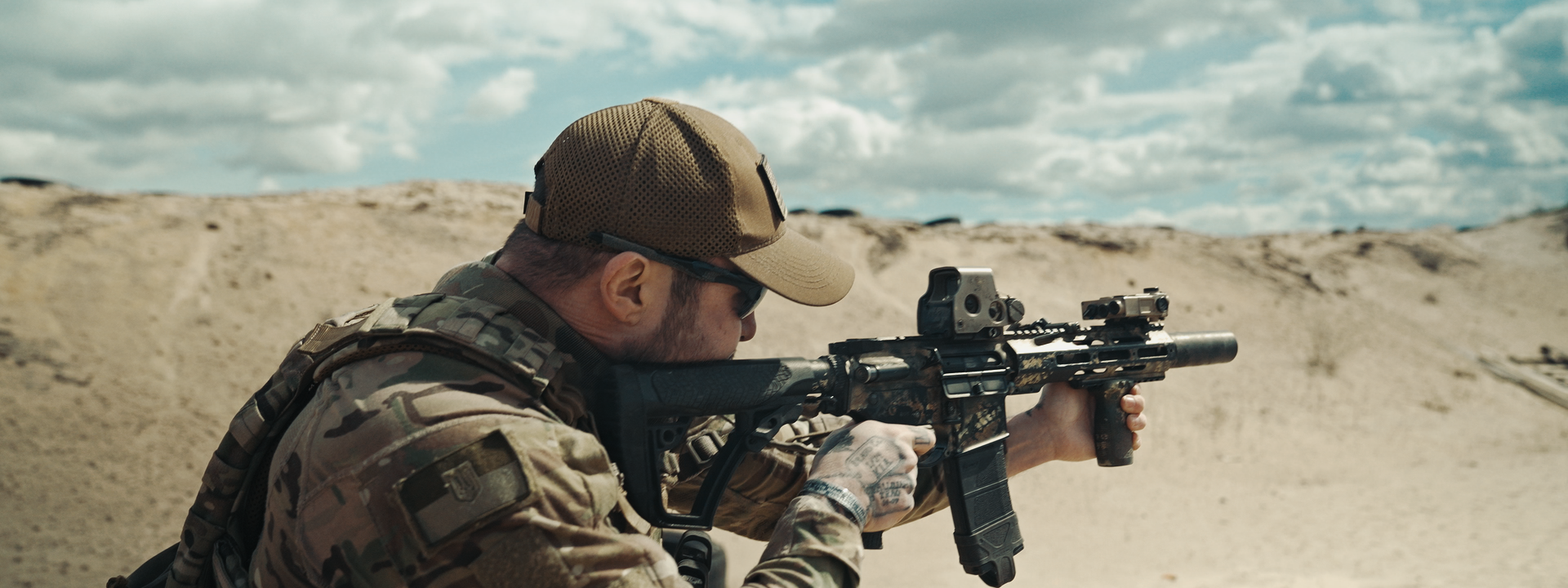
With the 6-month delay in military aid for Ukraine finally ending, we speak to three Americans who volunteered to fight in Ukraine. They share their reasons for supporting a country far away from home.
The six-month debate on military support for America’s allies ended on April 24, 2024, when President Biden signed the long-awaited aid bill for Ukraine, Israel, and Taiwan. Trump’s “America First” policy seems to have played a significant role in the discourse that led to the bill not being voted on for six months. Ukraine’s military—relying heavily on foreign aid—had its fate hanging in the balance.
In early April, Ukrainian President Volodymyr Zelenskyy addressed the situation saying: “If the Congress doesn’t help Ukraine, Ukraine will lose the war.” Russia had increased its attacks, as it sensed Ukraine was battle-starved. It took vital frontline cities like Avdiivka, which many say Ukraine could have defended if it had been adequately equipped.
Internal division in the Republican Party delayed the bill’s voting. House Speaker Mike Johnson, a centrist, was publicly threatened to be vacated by Marjorie Taylor Greene, who leads the more extreme Republican faction in the House of Representatives.
Since Russia invaded Ukraine in 2022, the United States has been the single largest benefactor, allocating $116bn in aid to Ukraine. The first bills saw bipartisan support. Democrats stood by the Ukrainians steadfastly, while the main issue on the Republican side was only the effectiveness of the aid delivery strategy—opting for something that would “get the job done.”
An April 12th Gallup Poll shows that Republican support for Ukraine has decreased. When comparing the polling results of Republicans, who at the beginning of the war were asked “If the U.S is not doing enough to help Ukraine,” at its peak in August 2022, Republicans answered with 30% of those interviewed saying “yes.” However, the most recent polling on that same question shows that same support being cut in half, with only 15% of Republicans saying yes.
In the last year, military aid packages have been caught in the crossfire of mainstream conservative talking points. These talking points state that instead of sending Ukraine billions of dollars, that money should be spent on domestic issues like migration, homelessness, and the drug epidemic.
In an attempt to find common ground with American conservatives on the topic of aid for Ukraine, we sought the opinions of American veterans who volunteered to fight in Ukraine. Most of these soldiers identify as conservatives and have experienced first-hand what it’s like to go to war against Russia with and without military aid.
Bryce Byington is a US Marine Corps veteran from Texas who served as a military police officer from 2013 to 2016. In April 2022, he arrived in Ukraine as an instructor, teaching Ukrainian soldiers NATO combat skills. Later, he signed a contract with the Ukrainian Marines and joined the 59th Motorized Brigade.
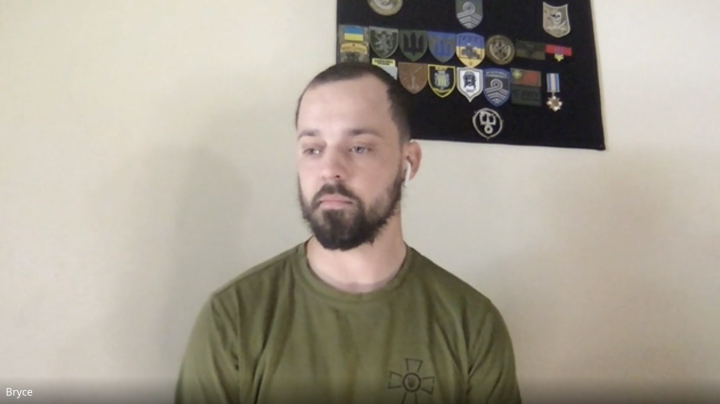
Media coverage of the war heavily influenced Bryce’s decision to fight: “Images of civilians murdered in the middle of the street and mass graves in cities that Russians were going through” were enough reasons for him to pack his bags and fight. “I firmly believe that if you have the means to help somebody you have the responsibility to help somebody”.
At the beginning of the war, Byington had seen the effects of US military aid packages in real time, saying he was fighting with “a stock AK-47 from 1967, old soviet grenades, and mines. Everything was just very outdated, and we had to make it work”.
Towards the end of his first contract in 2022, Byington saw the introduction of various Western weapon systems, like the Javelin and M-Law anti-tank rockets, into his brigade. “They combatted the Russian Tanks, BMPs, and BTRs that were constantly assaulting us and hurting us a lot.”
“We also saw the use of foreign air defense systems, which allowed us to shoot down the missiles and rockets that would target the critical infrastructures that we needed not only [for] military but for everyday civilians,” Byington alluded to the need to protect critical infrastructure for water, power, and heating.
When talking about the specifics of US aid, Bryce cleared up the confusion surrounding the dollar values attributed to the packages Ukraine receives. He addressed the misconception that billions of dollars in aid packages are not giant pallets of cash delivered to Zelenskyy, but appraisals of decommissioned military equipment sent and contracts for US defense companies to replenish stockpiles.
As Byington claims, sending out military equipment that “costs us pennies on the dollar to send” and is considered outdated or fit for demolition by the ever-adaptive United States military doctrine has positive benefits for Americans. He outlines the main benefits of military aid being sent:
Helping defeat an advisory Americans don't want to engage directly.
Getting rid of outdated military equipment that US taxpayers spend money to store and maintain.
Providing new equipment for the US Army and jobs to those working in the military-industrial complex.
Byington believes that a military loss in Ukraine would lead to further escalation, stating that “Russia will not stop with Ukraine, going into the Baltics, Poland, and even Berlin.” The potential for the spillover of global war is contained within Ukraine right now, he believes, and aiding Ukraine’s military avoids the possibility of American boots on the ground in Eastern Europe.
Giovanni Roman, a former US Marine Corps Sergeant who worked in an emergency room in Los Angeles as a civilian, was part of the first group of foreigners to join the International Legion in Ukraine. Roman later joined the 59th Motorized Brigade as a combat medic and fought with Byington in eastern Ukraine.
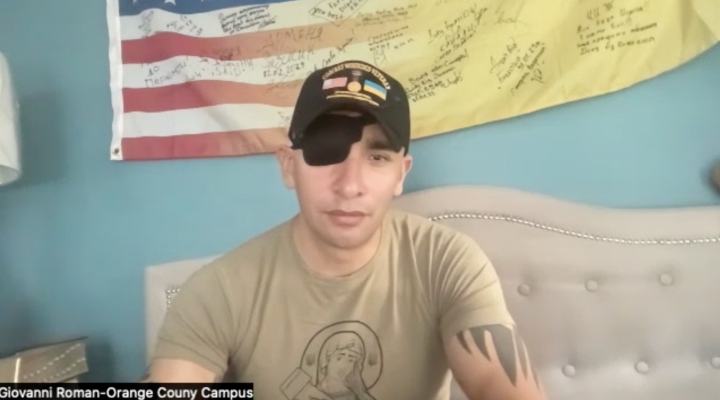
When asked about the significance of foreign aid for Ukrainians, Roman says, “When your home is being invaded, you want hope. Because without that, horrible things happen. I'm a Republican myself, and I know that the party is torn between getting aid to Ukraine or not”.
Roman, speaking about the six-month period in which the aid bill was stuck, said: “It [felt] disappointing, and in a sense [we] let them down because at the start of the war, we promised to help Ukraine to the end, and here we are two years later.”
Speaking directly to conservatives, he says, “If this doesn't stop now, [then] in twenty years, it's going to be your kids fighting this war.” Conferring with Bryington’s claims that in a scenario where Ukraine is defeated, an emboldened Russia would not stop at Ukraine’s borders—and would march to NATO territories like Poland or Finland.
“Some people have no idea. They’ve grown up safe their entire lives, and it's easy for them to say that [the war] is not their problem.” Later, he clarified that " Americans] just want peace in their time, and whatever happens in the future, they just disregard it, and that's very upsetting because history repeats itself.”
Bryce and Giovanni both sustained injuries when fighting in Ukraine. They both returned to the United States and actively advocated for the Ukrainian Army. Both have expressed a will to return.
Troy Offenbecker is a Former Marine who fought in Fallujah, Iraq. In the summer of 2022, he sold everything he owned and came to Ukraine to fight with the 1st Battalion.
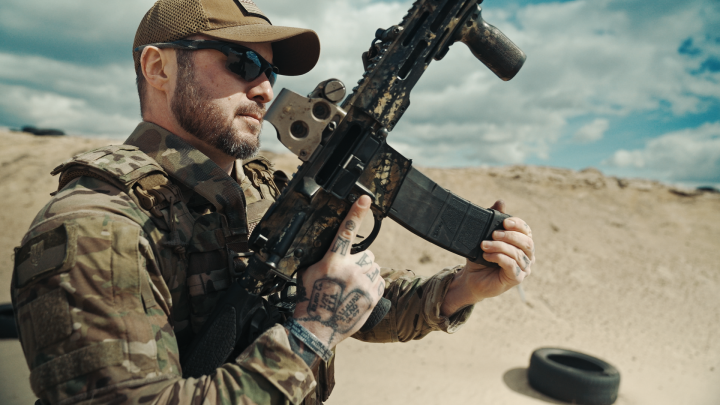
Offenbecker currently trains and advises various battalions in the Ukrainian Army. He identifies as a conservative. When news came of the aid bill being signed into law, he wanted to share a message to Congress and Americans back home:
“I’m incredibly pleased to see it’s been passed and much-needed aid will finally come.
It’s going to shift the battlefield exponentially [in Ukraine’s favor], also ensuring fewer civilian lives being taken by infrastructure attacks. For myself and the soldiers on the ground, it will help hold and keep defensive perimeters while at the same time [giving] the ability to take back real estate (land) in the heavily contested areas that have been dominated by armor, air, and massive placement of Russian troops.
I have always believed that my country would do the right thing. It may have taken longer than I liked, but I understand the bureaucracy and that only a few individuals slowed the process while most of the House and Americans favored it.”

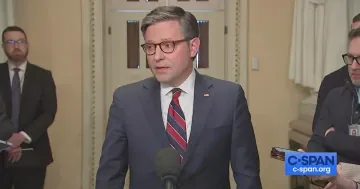
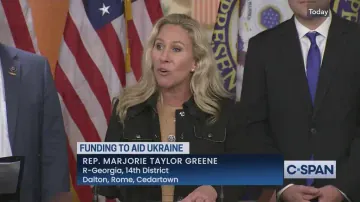
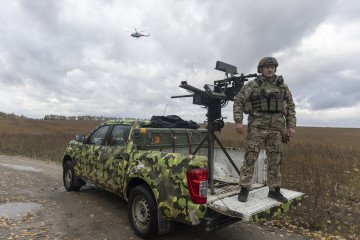
-605be766de04ba3d21b67fb76a76786a.jpg)
-0c8b60607d90d50391d4ca580d823e18.png)
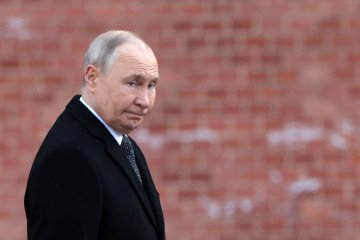
-29a1a43aba23f9bb779a1ac8b98d2121.jpeg)
-76b16b6d272a6f7d3b727a383b070de7.jpg)
